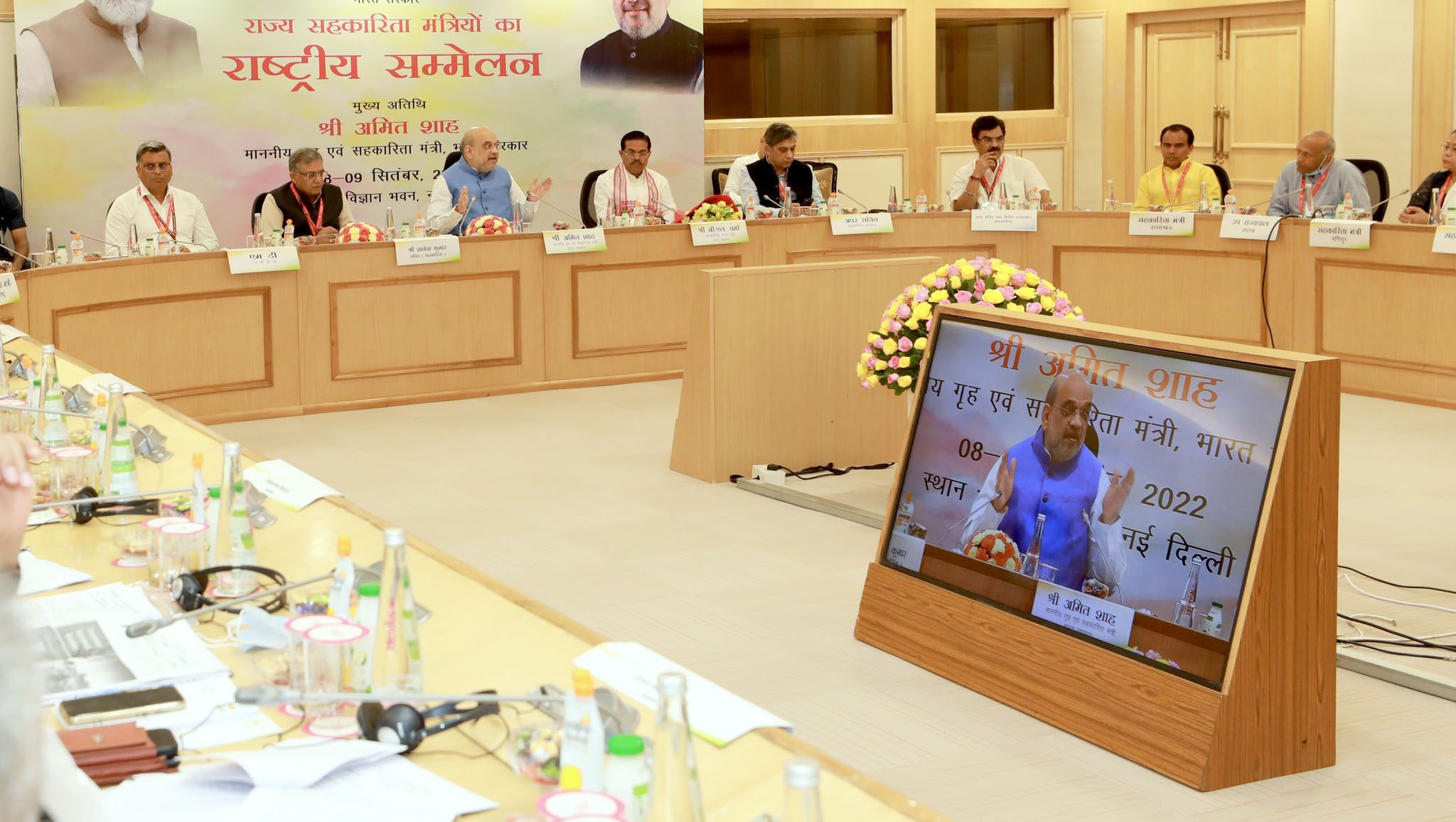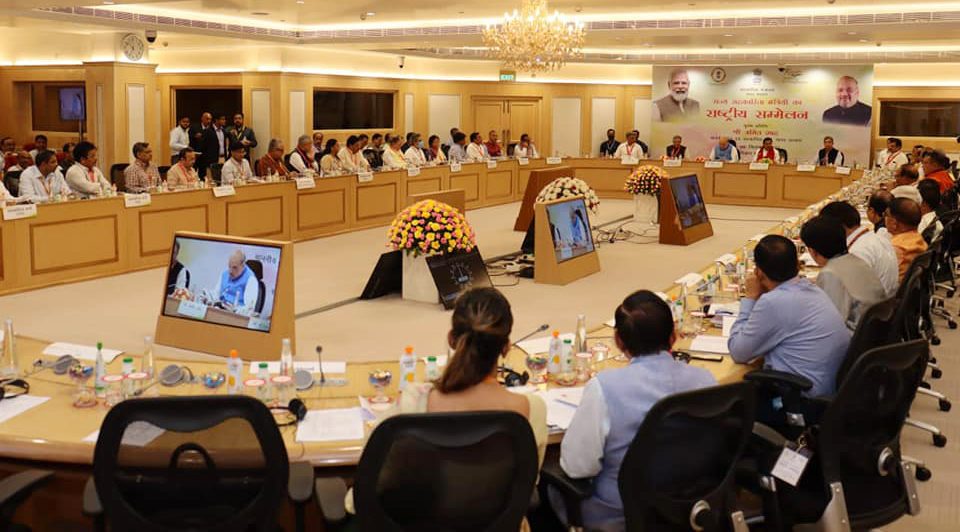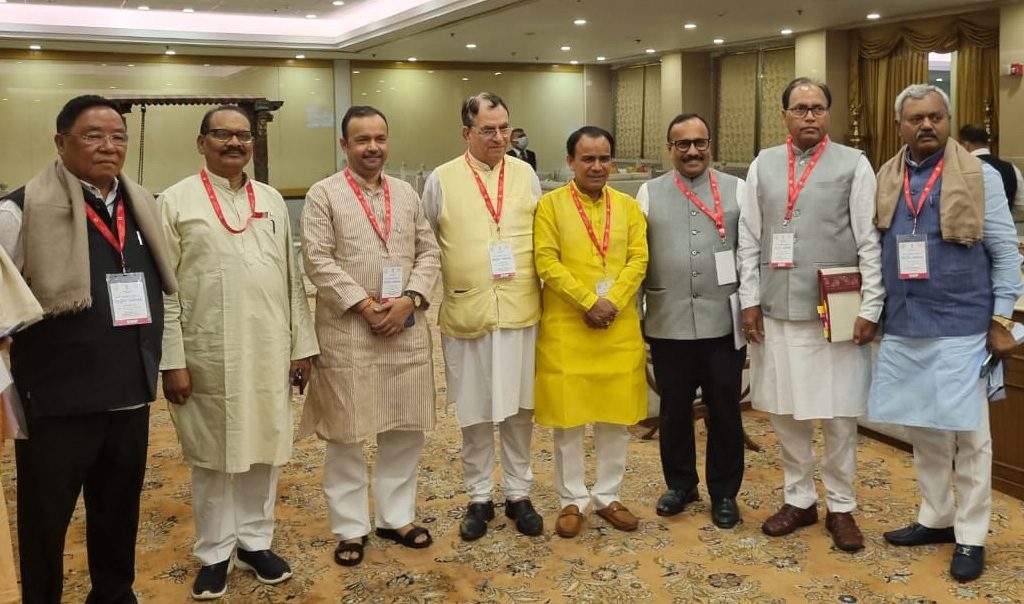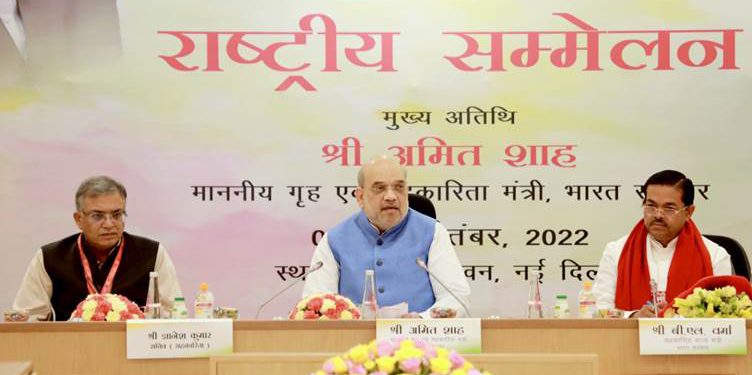Aware of the fact that the grand vision of cooperatives being conceived by his Ministry, cannot succeed without the support of state governments, Union Cooperation Minister Amit Shah made an impassioned appeal to state co-op ministers at the inaugural session of a two-day National Conference in New Delhi on Thursday to follow a national roadmap for the development of cooperatives.
“Stress areas and foci could vary for different states but the route to achieve the vision should be similar and standard for each of us”, said Shah while expounding upon the unique features of new PACs aimed at transforming rural landscape.
Assuring that there is no politics involved so far as cooperative movements are concerned and that states should not be taken in by rumour mongering, Amit Shah asked state ministers to pick up the phone and call him directly in case of any confusion.
Several state representatives including the Minister of State for Cooperation, B.L Verma and Cooperation Ministers of 21 States and Lt. Governors of two Union Territories were present in the conference.
In the constitution of India Cooperation is a State subject and there is no need to change the same. In a country like India, the entire cooperative movement should follow the same path, and for this all States have to have common views. “For this we need to have a National Cooperative Policy”, Shah said adding a Panel under Suresh Prabhu and representatives of all the states has been formed for the purpose.


Shah informed the state ministers about many new developments initiated by the Ministry since it was formed last year. Shah said that in just one year, the Ministry has organized many meetings and conferences in all the related areas of cooperatives.
Besides new PACS, Shah touched almost all the flagship projects launched by the new ministry including co-op data bank, co-op export house, seed co-op and co-op university. Stressing the importance of trained manpower for co-op business, Shah said that a co-op college would be set up in each state under state co-op union which would be affiliated to this University and would cater to specific needs of the state.
Shah said Prime Minister Narendra Modi has been working to raise the standard of living of 70 crore poor persons. Having met their basic needs, the aspirations of these people have been awakened but they have little capital. Co-operatives constitute the only sector in which a lot of people can come together and contribute hugely even with minimal capital and Amul in Gujarat is a classic example of this, underlined the minister.
The Union Minister for Home and Cooperation said mass production is necessary for the development of the

“Cooperatives now have to make it a habit to live with competition, only then will cooperatives be able to move forward. Along with this, we also want to carve out some new dimensions, such as insurance, health, tourism, processing, storage and services. These are areas in which a lot can be done through cooperatives”, said Shah.
We will be able to conduct business for PACS in their native languages. In this way an ambitious plan has been brought in by the Cooperation Ministry, but it cannot be possible without the active cooperation of all.
Talking about Nafed, Shah said NAFED would promote cooperative marketing by proactively cooperating with the State Marketing Federations. NAFED will actively integrate PACS with marketing and the entire marketing profit will eventually reach PACS through the NAFED State and District Federations.


He said the Ministry of Cooperation has done a lot of work in the last one year to strengthen cooperatives and cited cases of reduced tax for sugar mills, surcharge on co-operative societies reduced from 12% to 7%. Cooperatives across the country have benefited from all this, we have worked to bring down the MAT rate from 18.5% to 15% at the corporate level. We have recognized cooperatives that could buy and sell from GeM.
“We have also succeeded in getting changes approved by RBI, by taking a lot of decisions for rural and urban co-operative commercial banks which will increase their business and a listing of all pending questions of urban co-operative banks and the banking sector with RBI is also in progress’ , he stressed.
The Union Cooperation Minister assured state co-op ministers that now the cooperative movement cannot be treated as a second-class entity but we also have to bring transparency, be accountable, increase efficiency, accept technology, accept professionalism and work hard to take cooperatives to new areas, he concluded.






















































